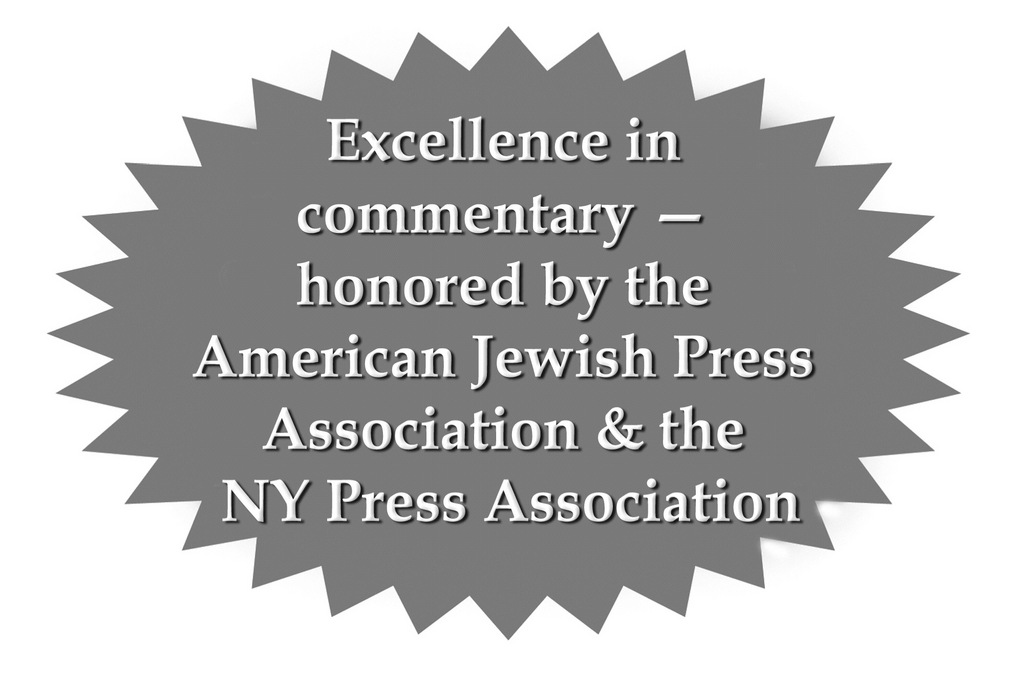David Seidemann: Judging by intentions
From the other side of the bench
Issue of Jan. 23, 2009 / 27 Tevet 5769
Did you ever wonder why the heart and the mind are concealed while the hands are exposed? In my “pre law pulpit” days, I once explained that the reason for this is to drive home the point that man’s intentions — whether emanating from his heart or mind — need to be investigated and uncovered before others can ascribe motive. Indeed before jumping to conclusions as to man’s worth, innocence or guilt, we cannot only focus on man’s deed, but rather on his intentions, his heart, his conscience.
You see, others can prevent us from accomplishing. I want to drive through a certain intersection, but a tree, a storm, another vehicle blocks my way. Day in and day out, forces outside our control can prevent us from accomplishing “good.” However, no one can prevent us from thinking about and desiring to do well.
The catch 22 is that while we should judge favorably and give the benefit of the doubt, man’s true worth — based on the sincerity of his heart — can’t often be appreciated for years to come.
So as George W. Bush leaves office, say what you want about his policies, his ability to express himself, the presence of WMD or the absence thereof, his position on immigration, taxes or ground hogs day. It is this writer’s belief that he was one of the most moral, trustworthy, and principled people to occupy public office, anywhere, in recent memories. Most germane to our interests is that he understands lack of moral equivalence between terrorist thugs and a State struggling to defend itself.
His presidency, while many would like to evaluate it now, might be one that can’t be evaluated for many, many years. Those that argue with him — and worse, degenerate him — can’t argue that at one of our countries most vulnerable times, no “repeat” performance occurred. I don’t believe it was because our enemies suddenly discovered a newfound love for democracy. All too often we measure a partner, spouse, teacher, rabbi and, yes, even a lawyer by what they did, with little regard to what their efforts might have prevented.
Were we to search the heart and conscience of another, perhaps, just perhaps, the evil motives we ascribe to the other person will vanish. We will be less concerned with what a person did to us and more focused on “did he really mean to hurt us.” It is human nature to want something for ourselves, so badly, that we view what someone else did and then, to support our theory, actually invent the other actor’s motivation. It makes it so much easier to love ourselves if we can somehow dislike a person with a competitive interest.
The key is rooted in being able to observe another’s action and before becoming angry, to ask ourselves, did that person really mean to harm me or were they simply acting according to their belief, even it that belief is somehow “wrong.” Bearing that in mind allows one to judge the issue and not the person with the opposing point of view. It diffuses anger, creates harmony, and allows for adjudication of matters on the merits devoid of unnecessary ill feelings and spite.
Especially now, in the midst of an economic crisis and raging conflict in many parts of the world, tolerance, patience, mercy, compassion and judging one’s fellow man favorably is the order of the day.
I have stayed out of the fray involving the Shulamith School as it winds its way in and out of court and Beit Din. The charges, counter charges, accusations, memorandums from 1988, 1938, or 1888 are all issues to be sorted out. I do not know enough details to opine legally, factually, morally or ethically as to who is right and how the matter should be resolved.
But this much I do know. I have known Rabbi Moshe Zwick, the executive director of the school, for many years. Years before my daughters enrolled in his school, I knew him from other issues involving the Jewish community here and abroad. I am privy not only to what he has done, but just as important, I am privy to what he has prevented. I am privy to the acts of quiet kindness he performed to prevent shame, embarrassment and uneasiness of children without parents, and single parents. I am privy to catastrophes he has handled and those he has prevented by his single purpose goal of educating Jewish girls to love Torah and Eretz Yisroel while simultaneously preparing them for careers in the secular world if they so choose. I know not only the results of his hands, but the intentions nestled in his heart and mind as manifested by his many good known deeds and secret deeds.
I leave it to others to sort out the details of the specific dispute embroiling that institution at this time. I leave it to others to decide who is right and who is wrong. I feel comfortable saying that if the parties would step back for a moment and reflect that they are dealing with a person, a good person; if the inflammatory rhetoric would be replaced by favorable judgments and the internalization of the other side’s sincere intentions, the matter could be resolved.
This message can be applied to all of our interactions with everyone we encounter on a daily basis. Remember that the person you might be struggling with is indeed a person and not just an idea, principle or position. When “persons” triumph over “position,” resolution of conflict is facilitated.
David Seidemann is a partner with the law firm of Seidemann & Mermelstein. He can be reached at (718) 692-1013 and at ds at lawofficesm.com.

 60.0°,
A Few Clouds
60.0°,
A Few Clouds 







